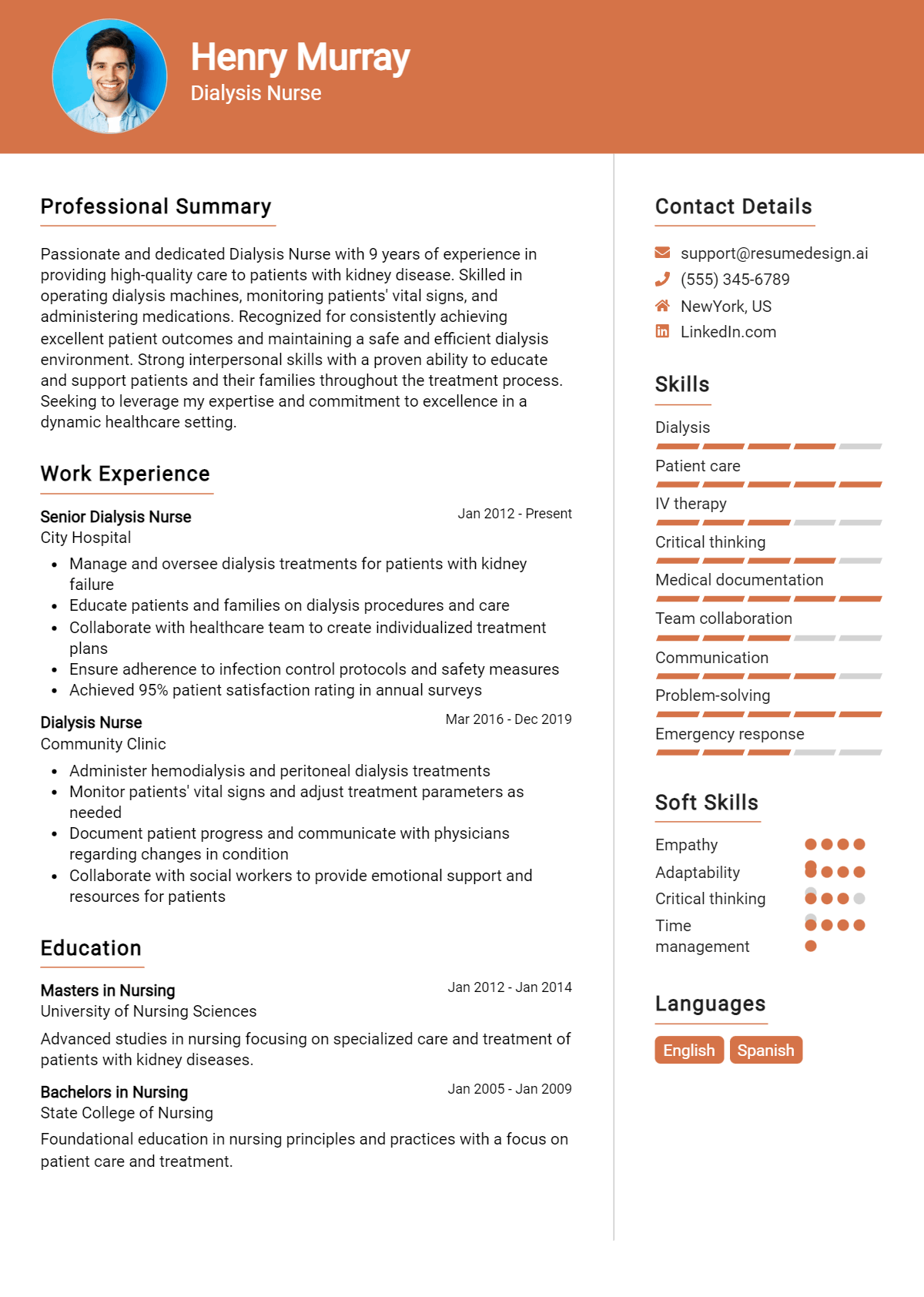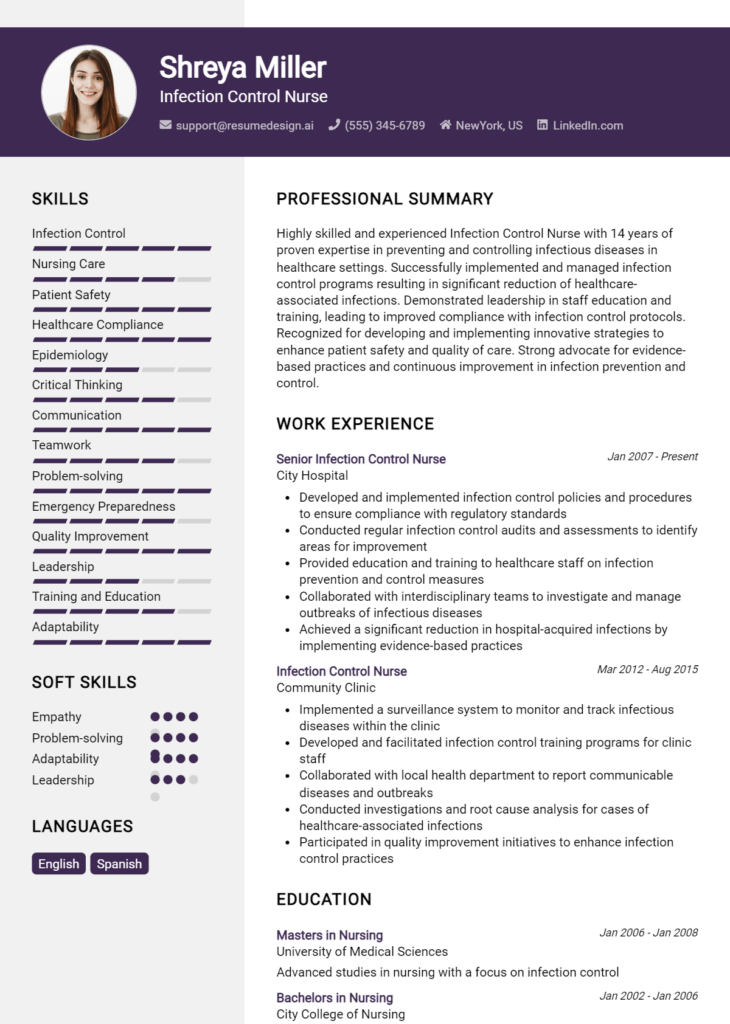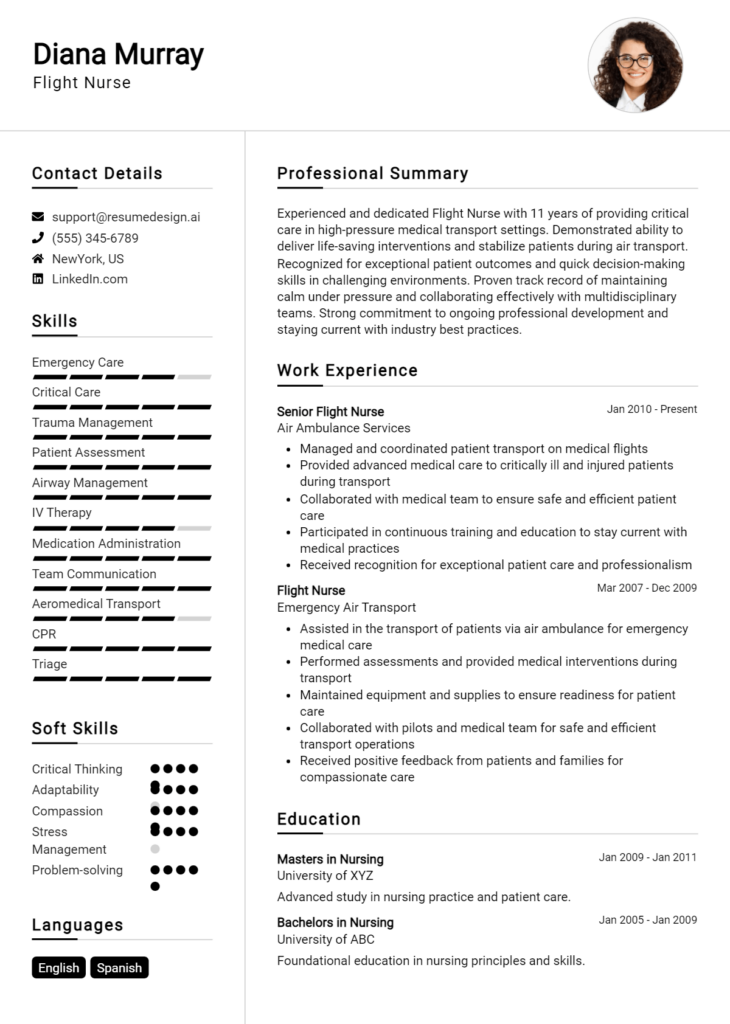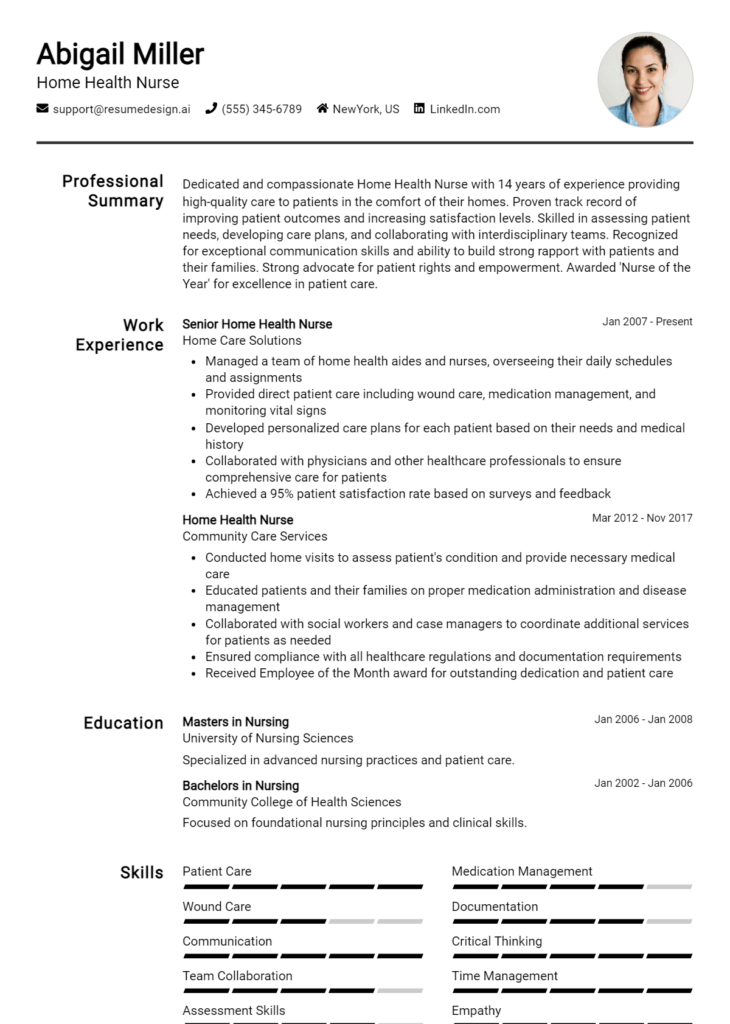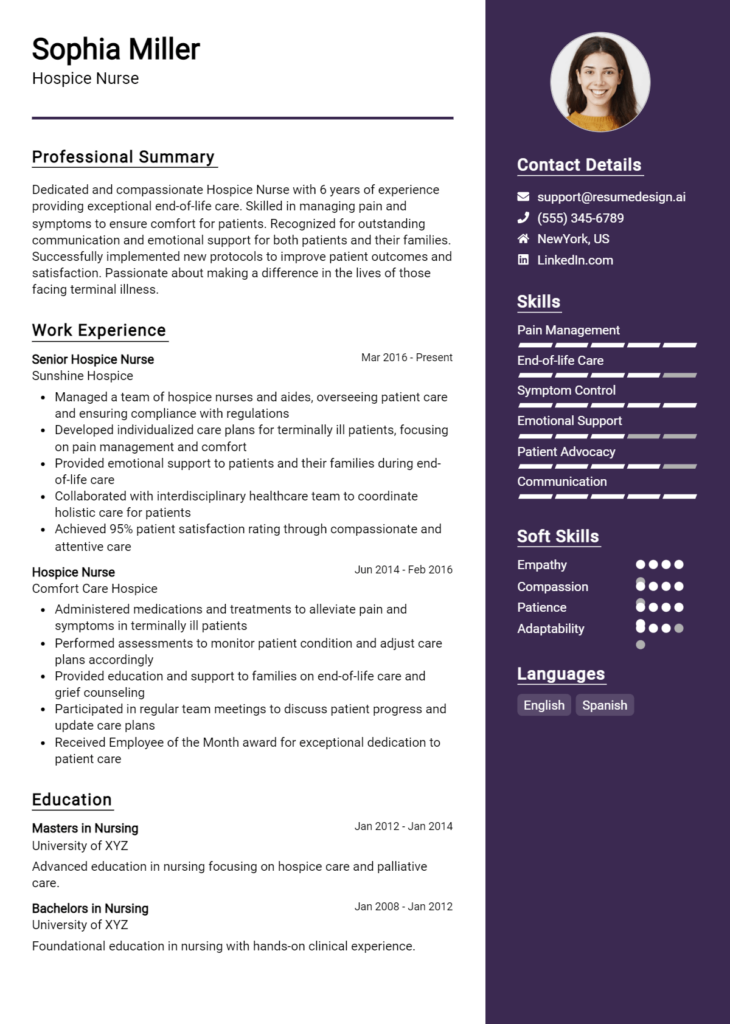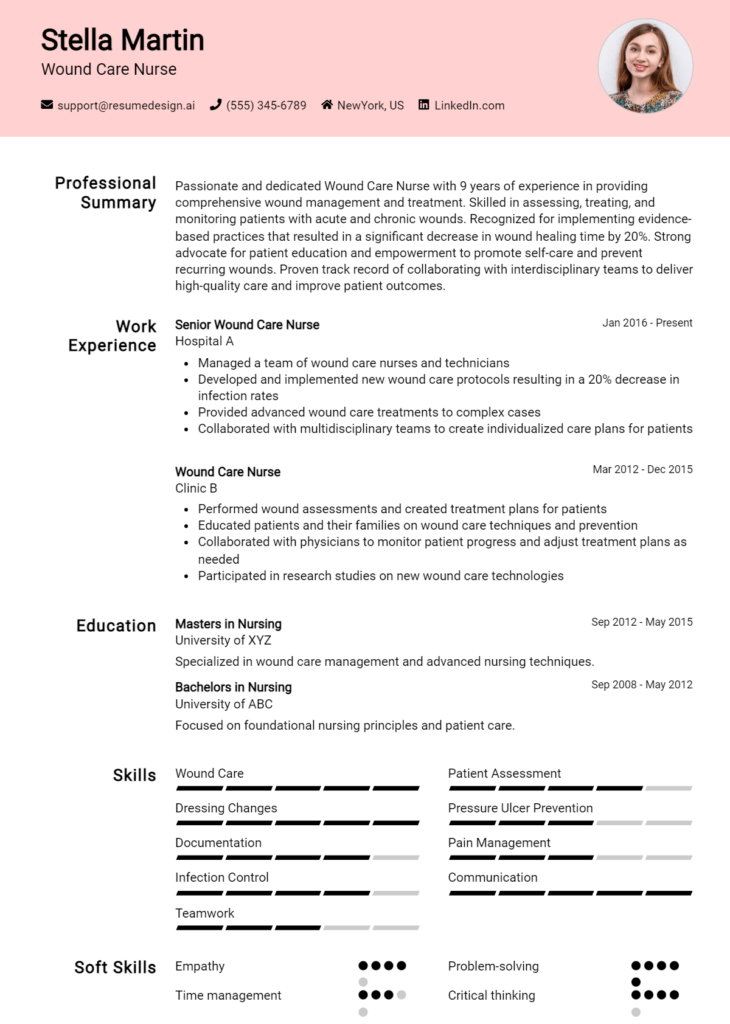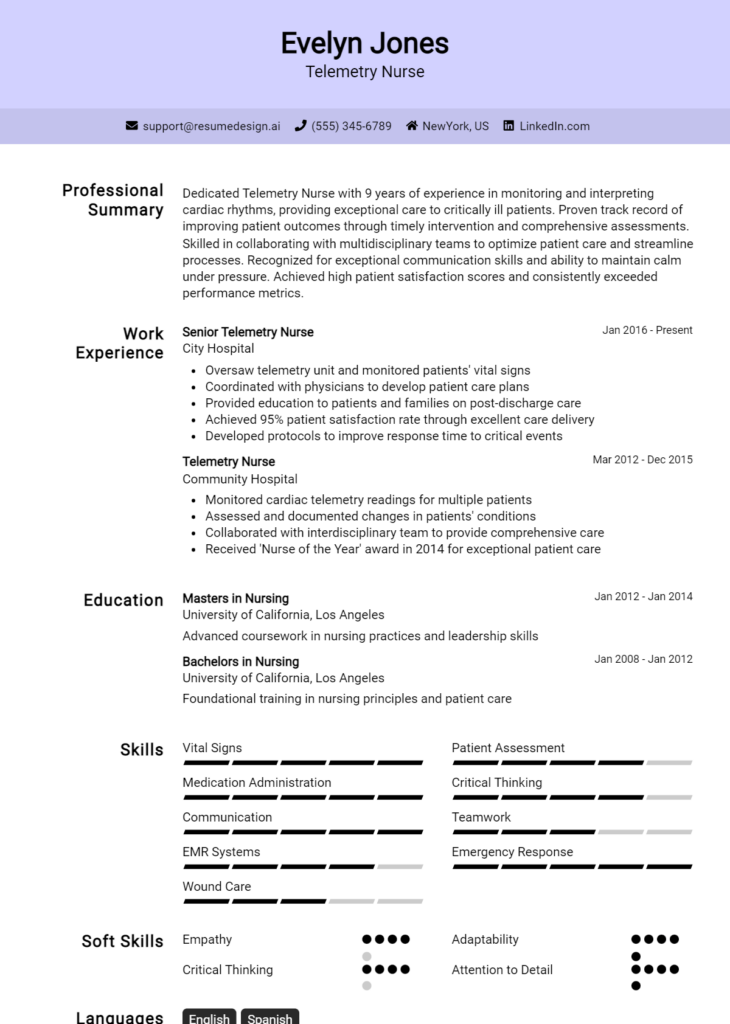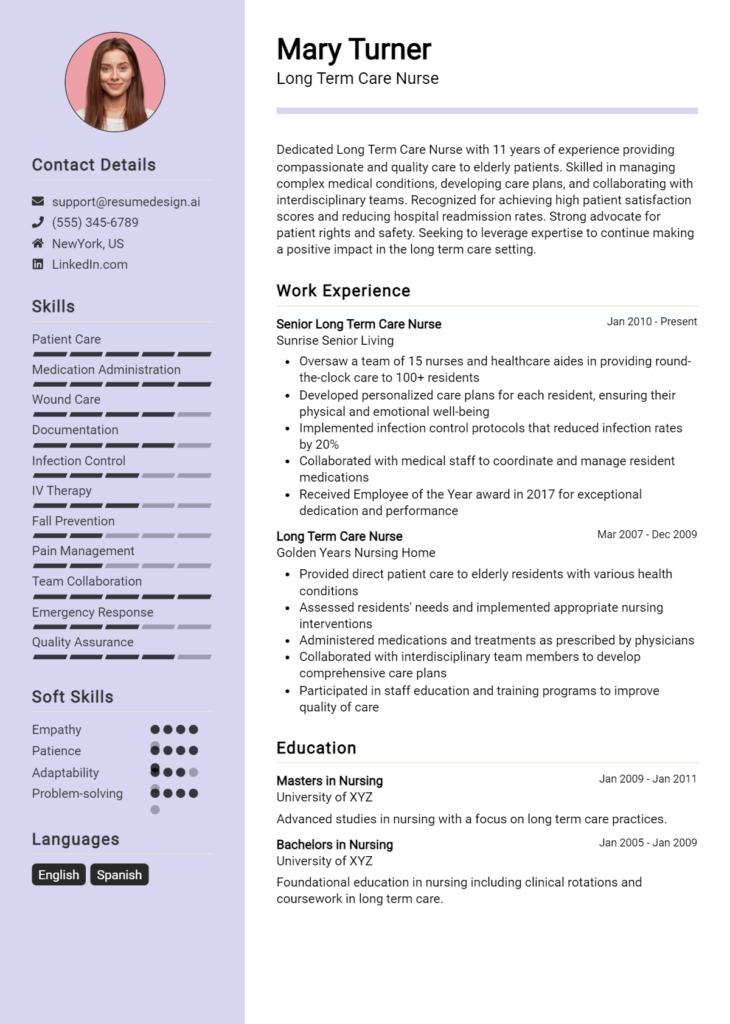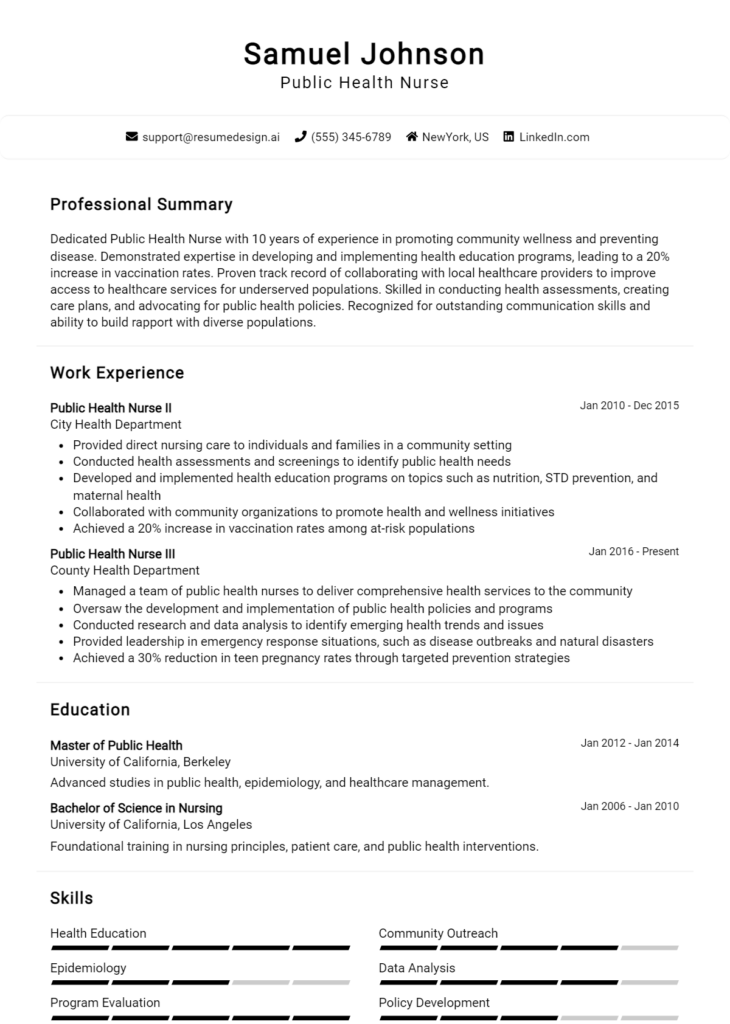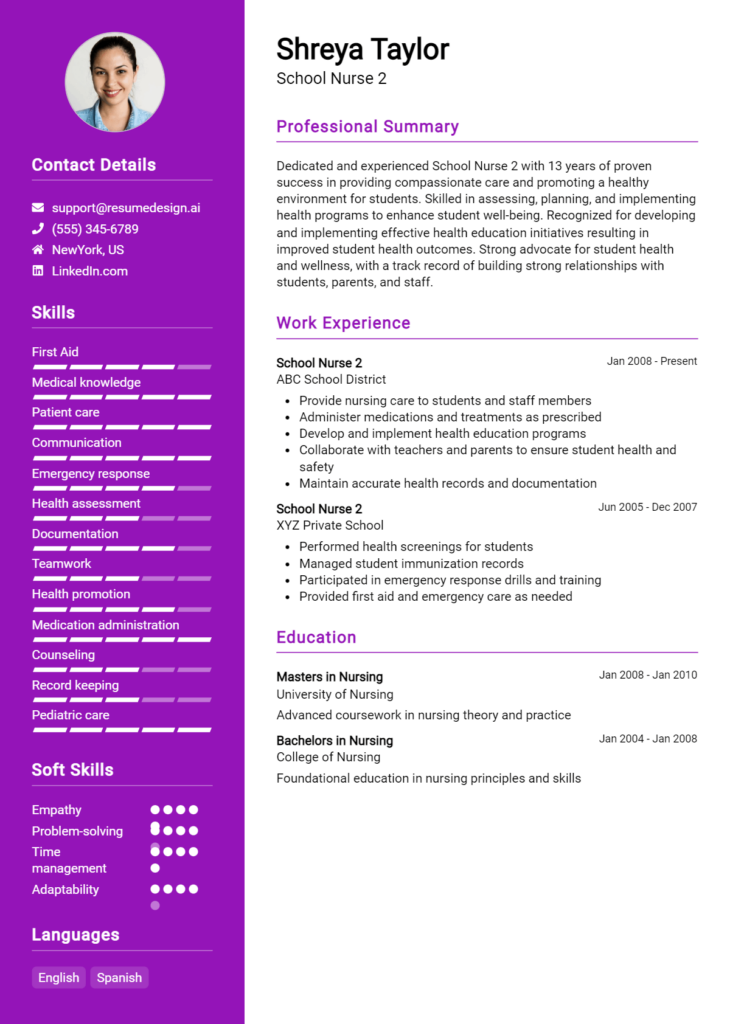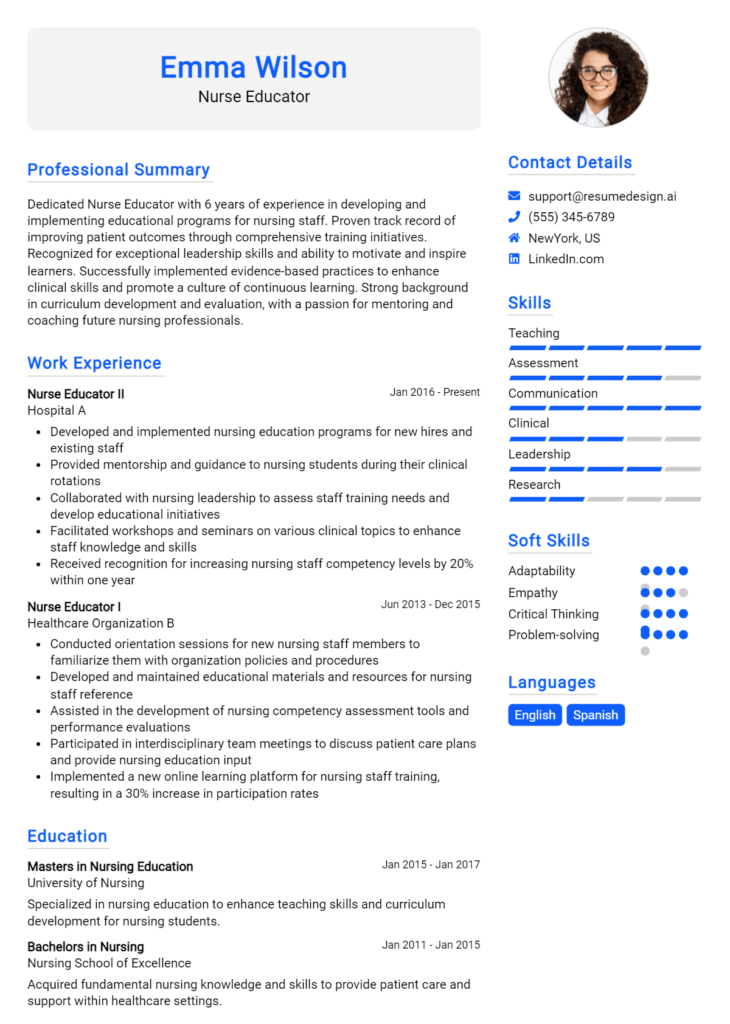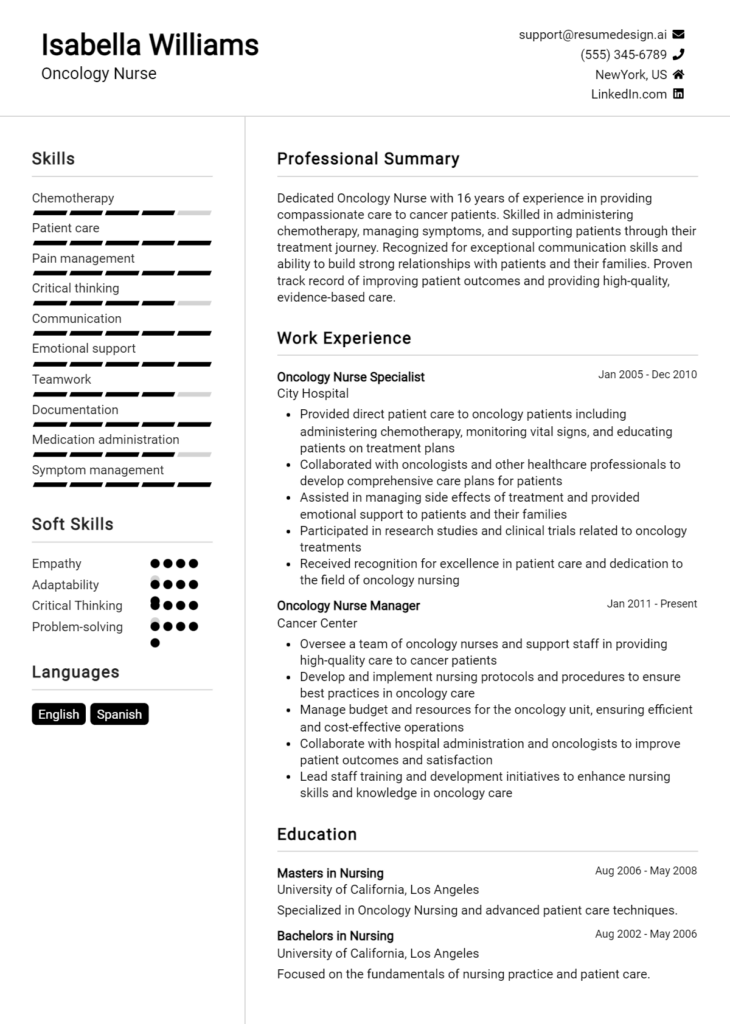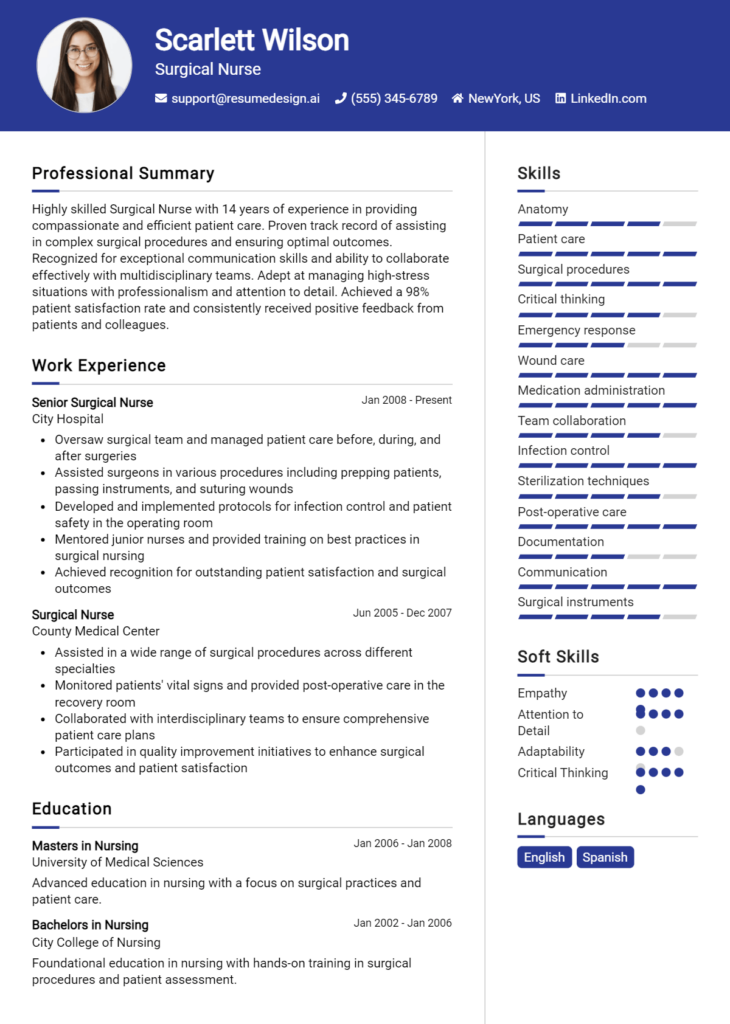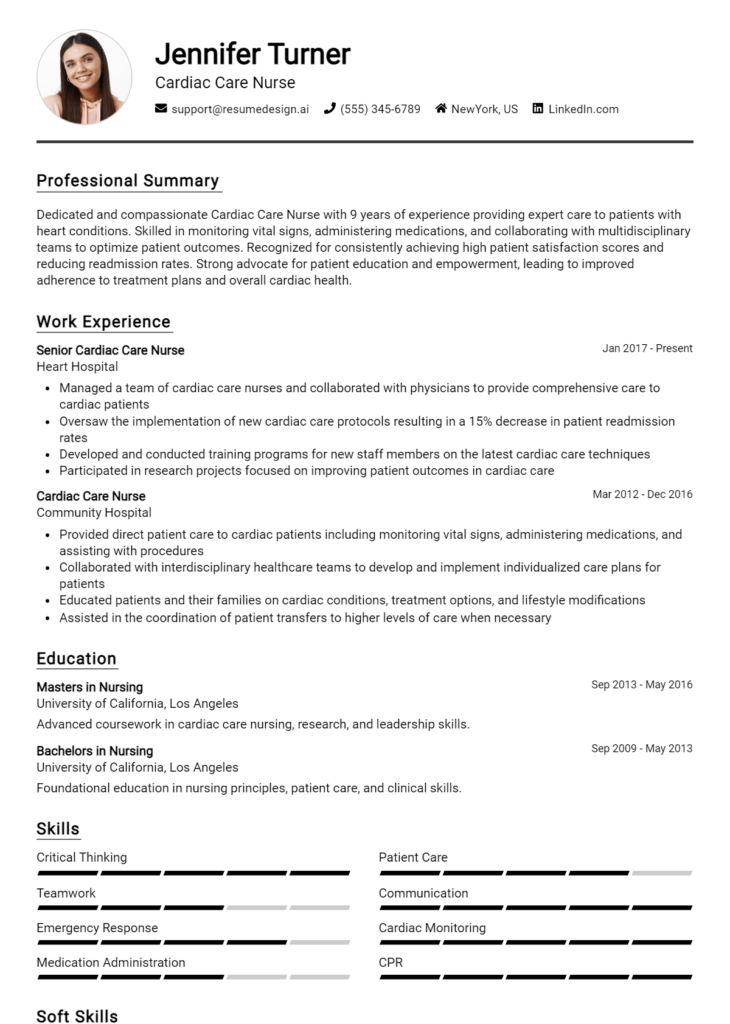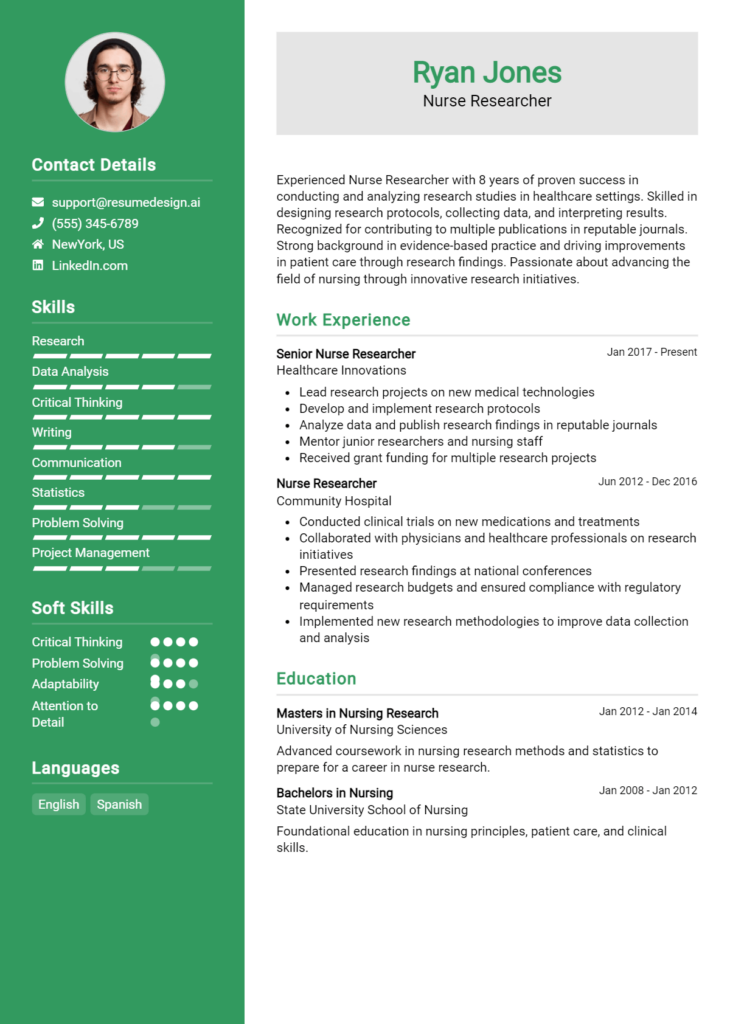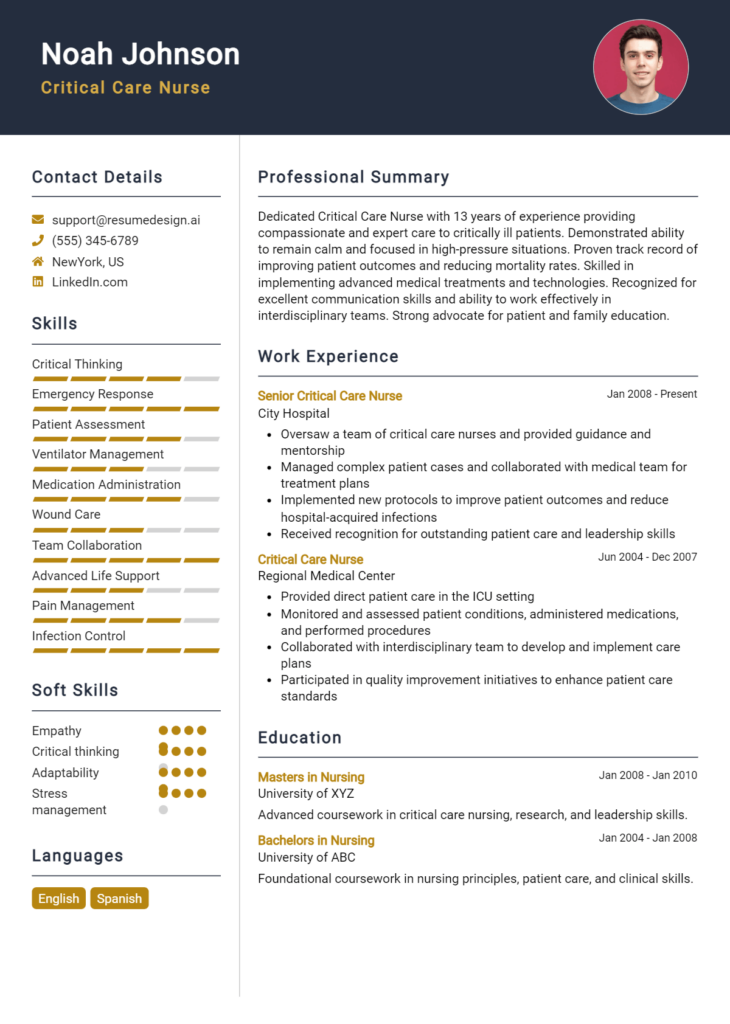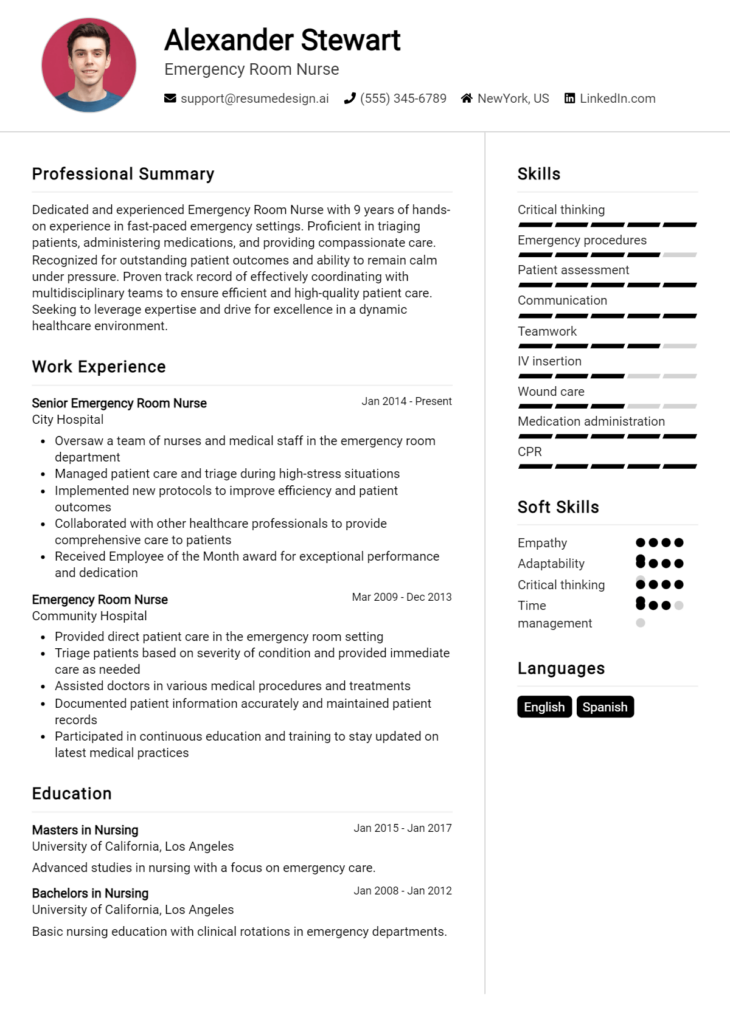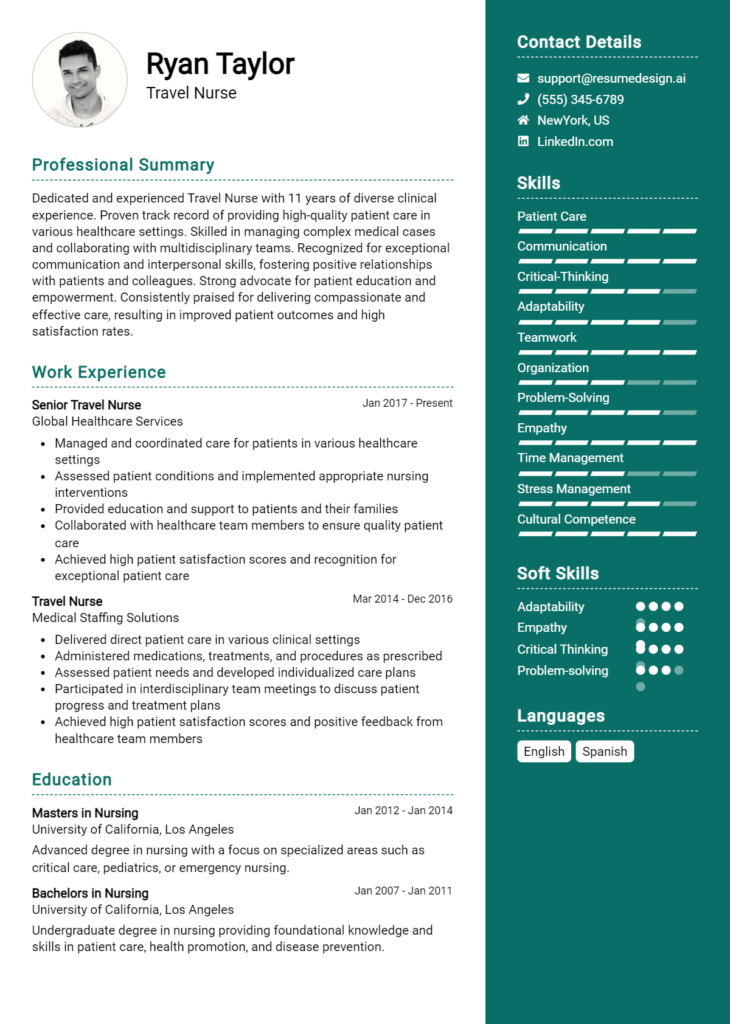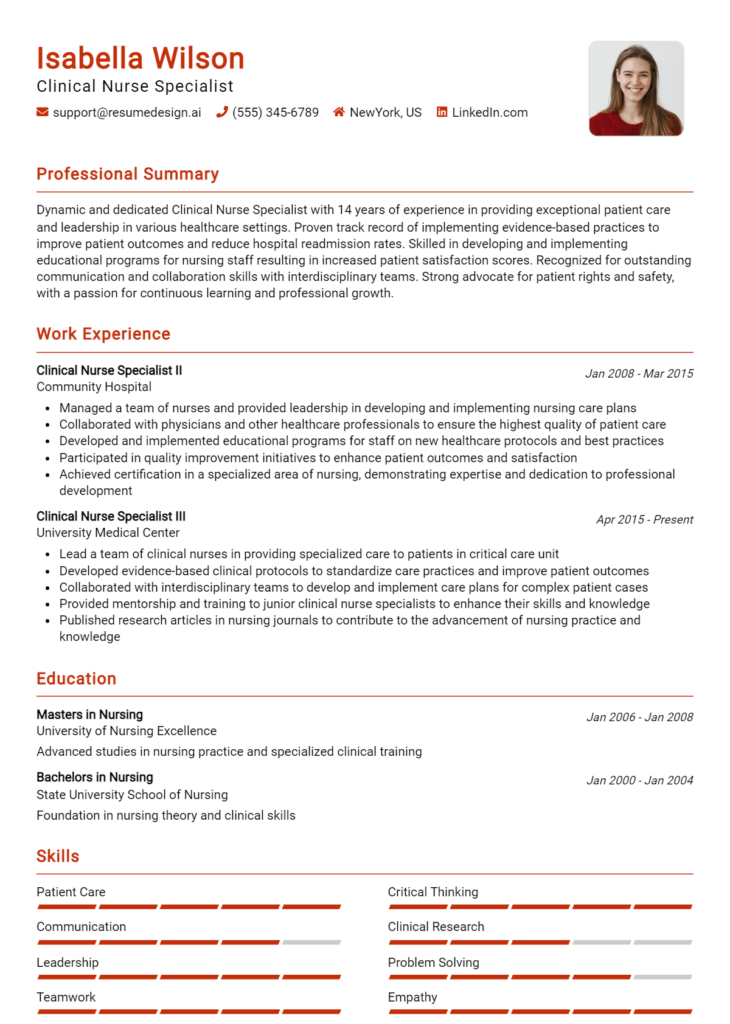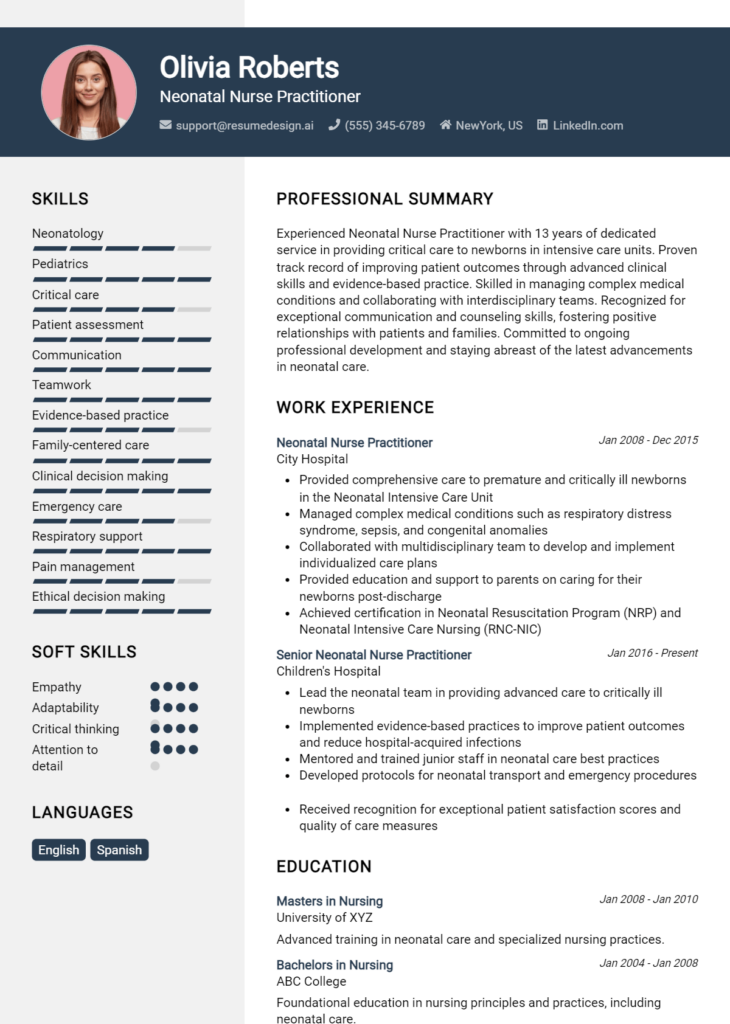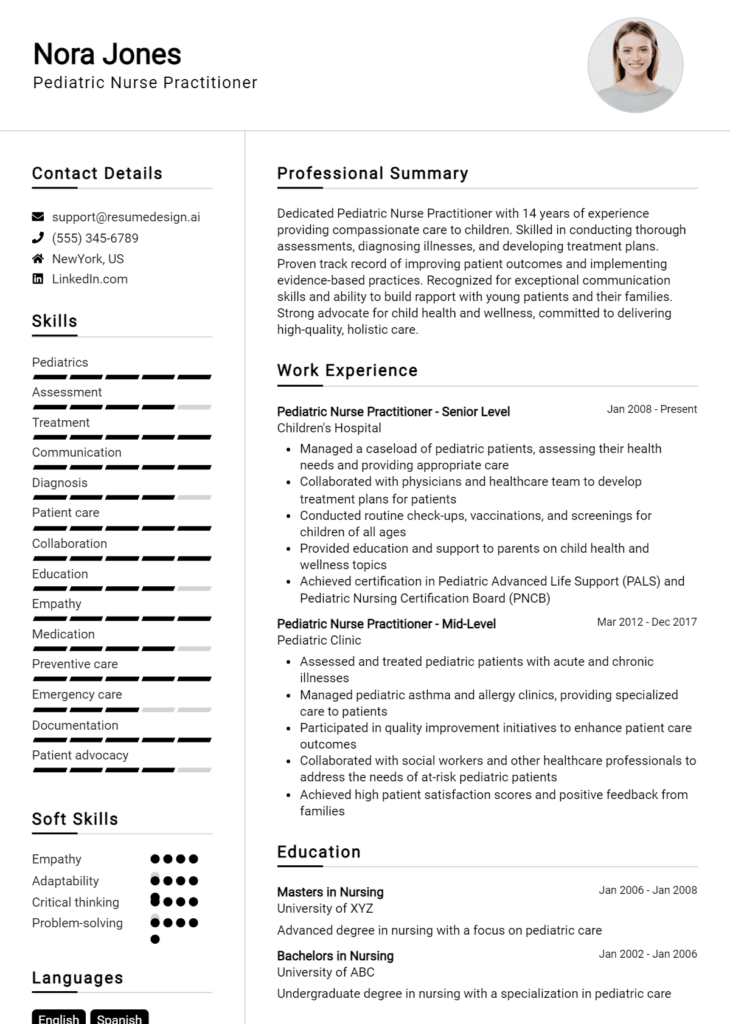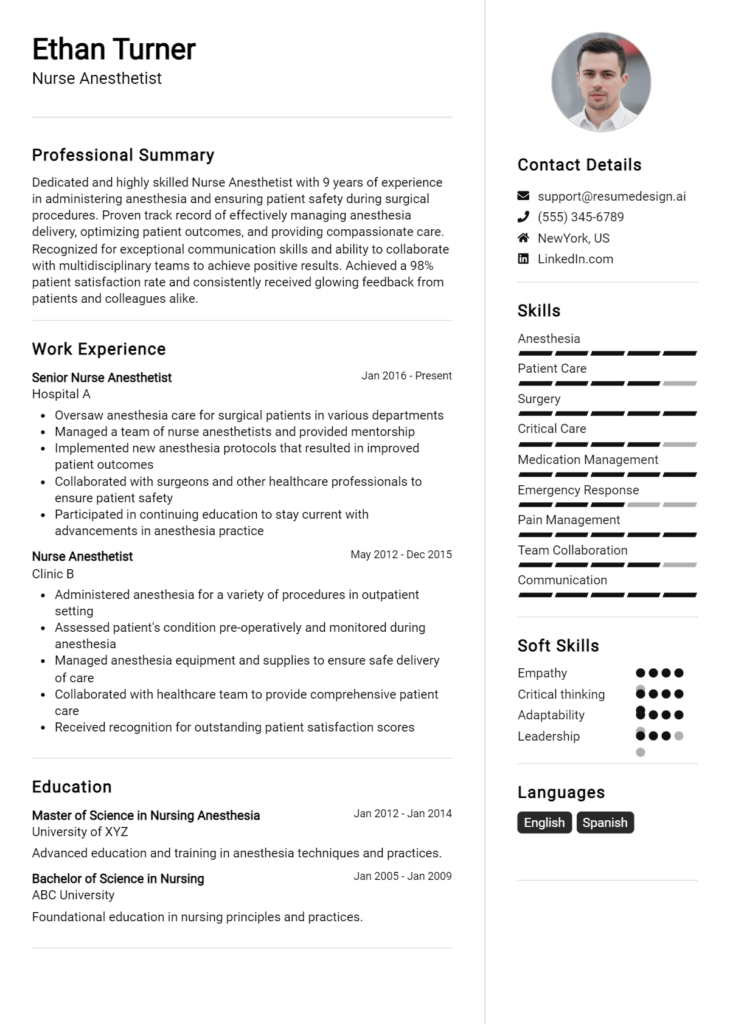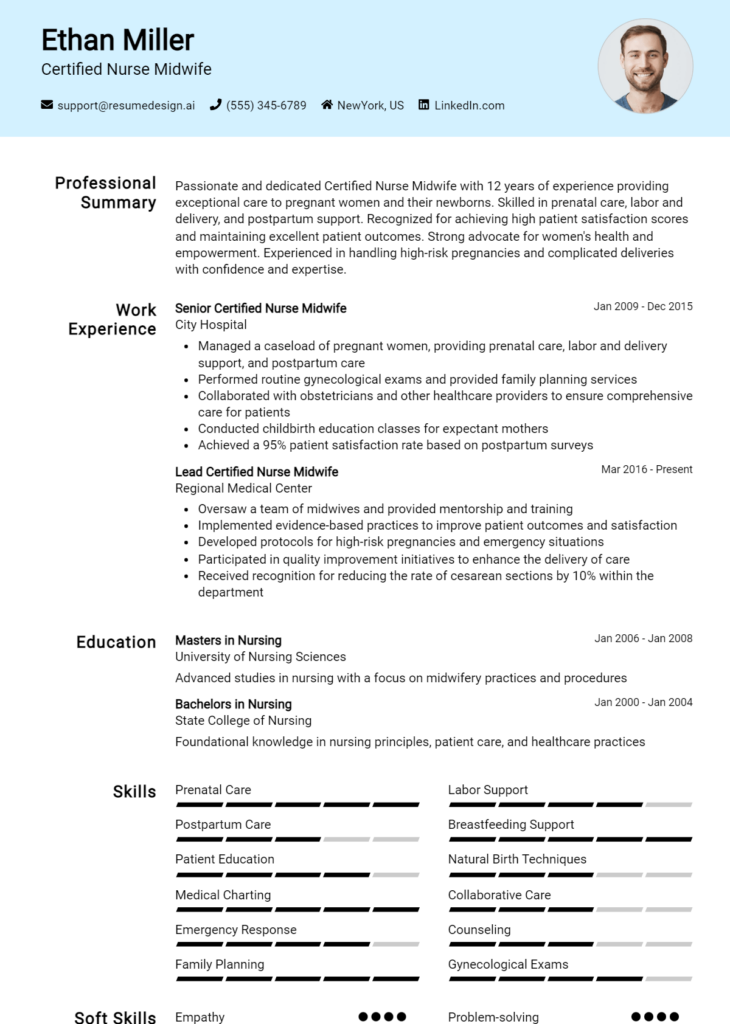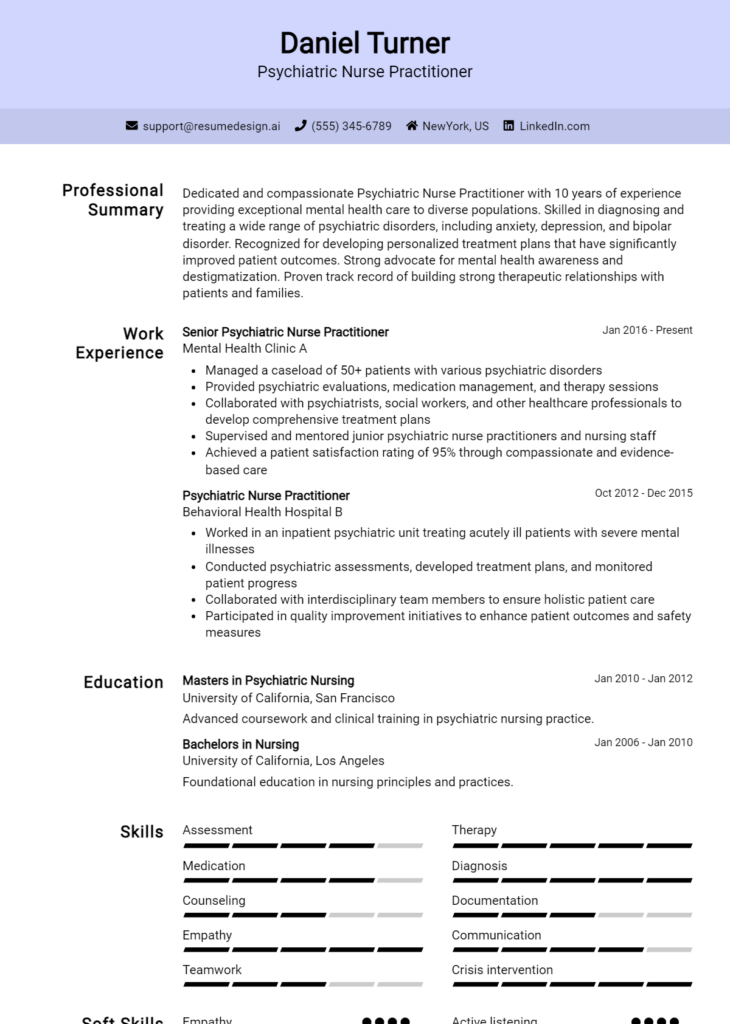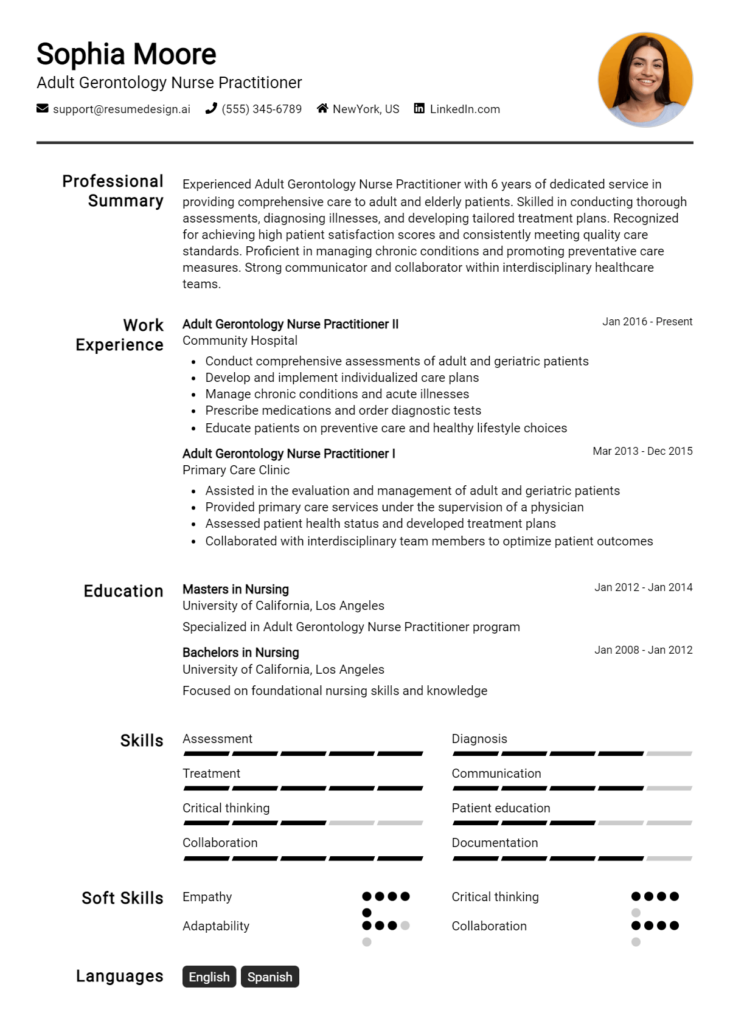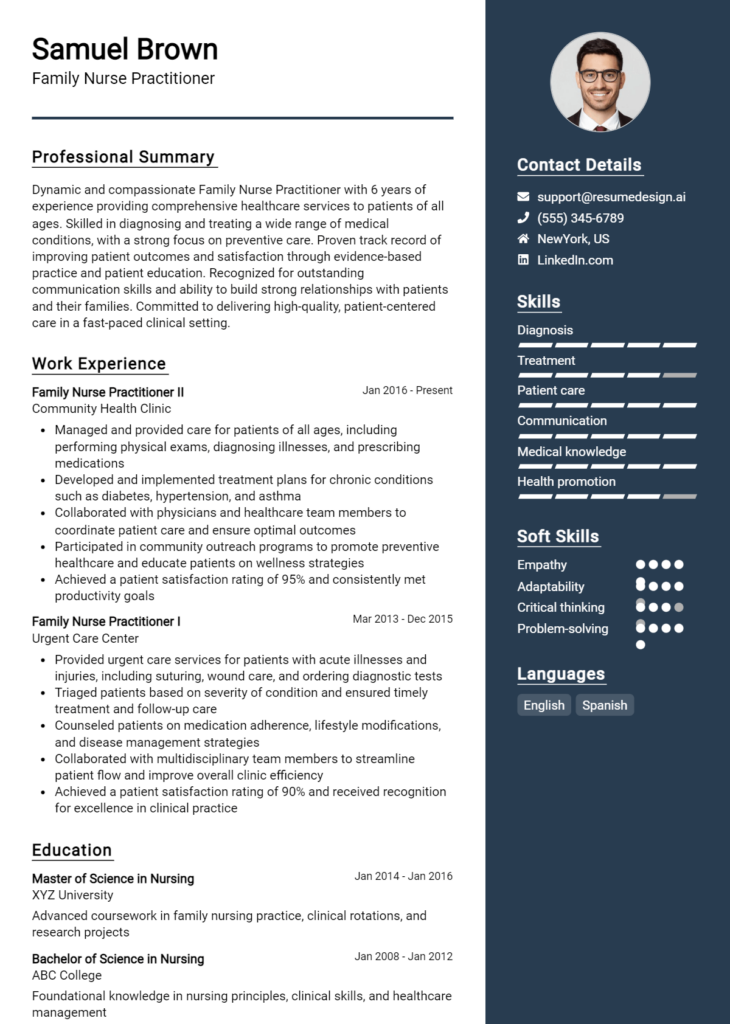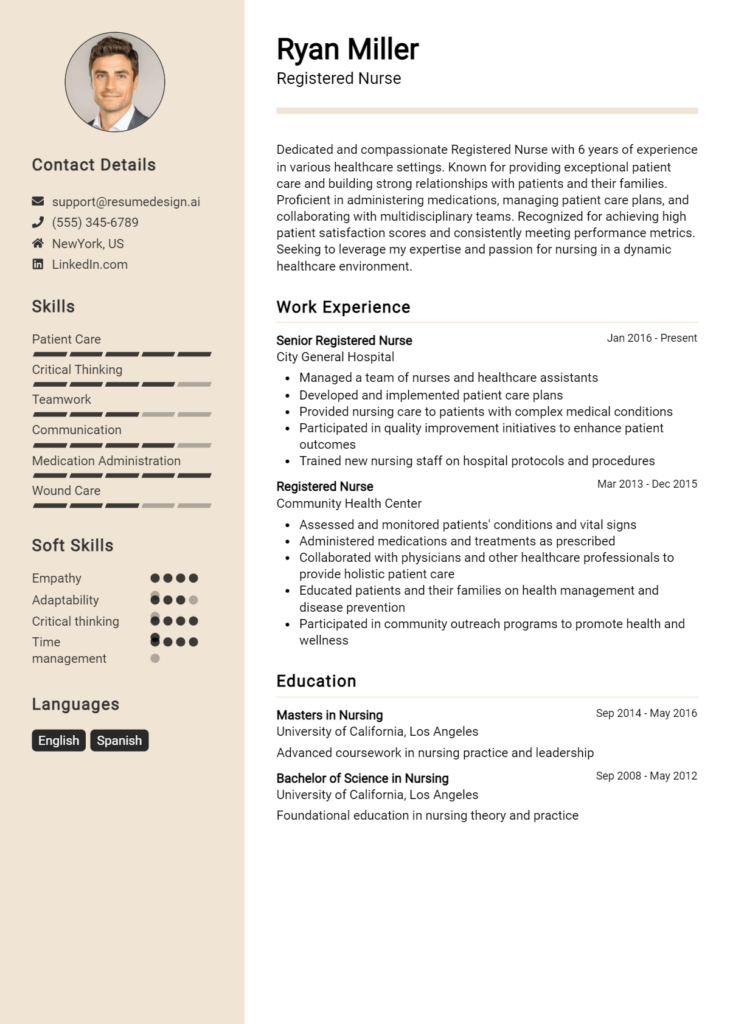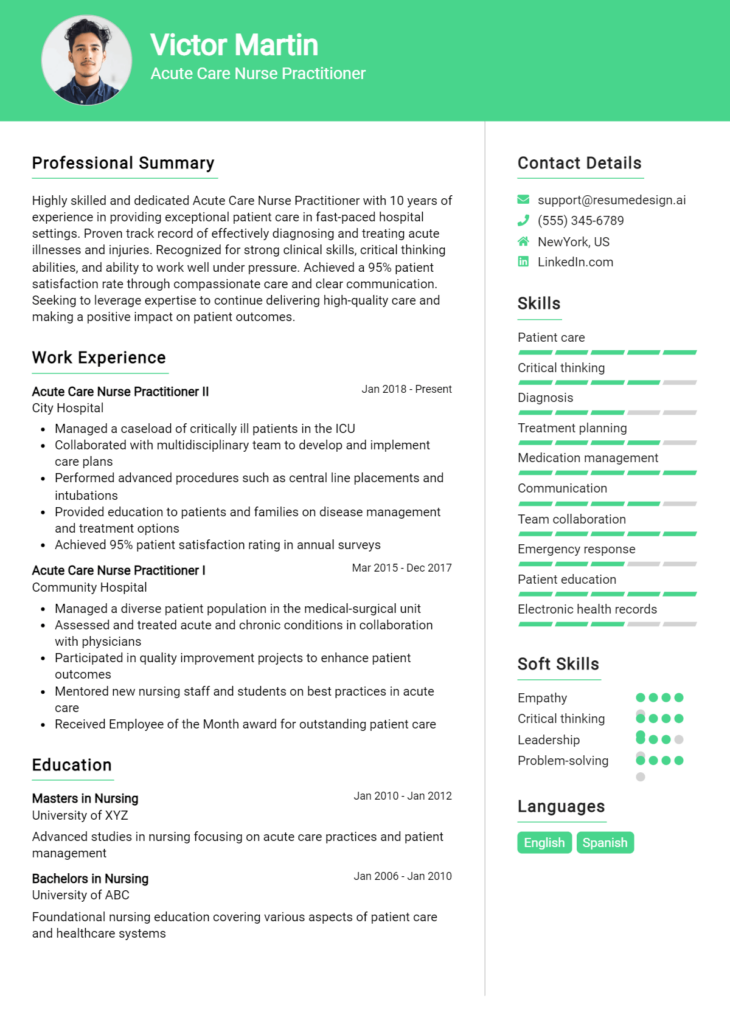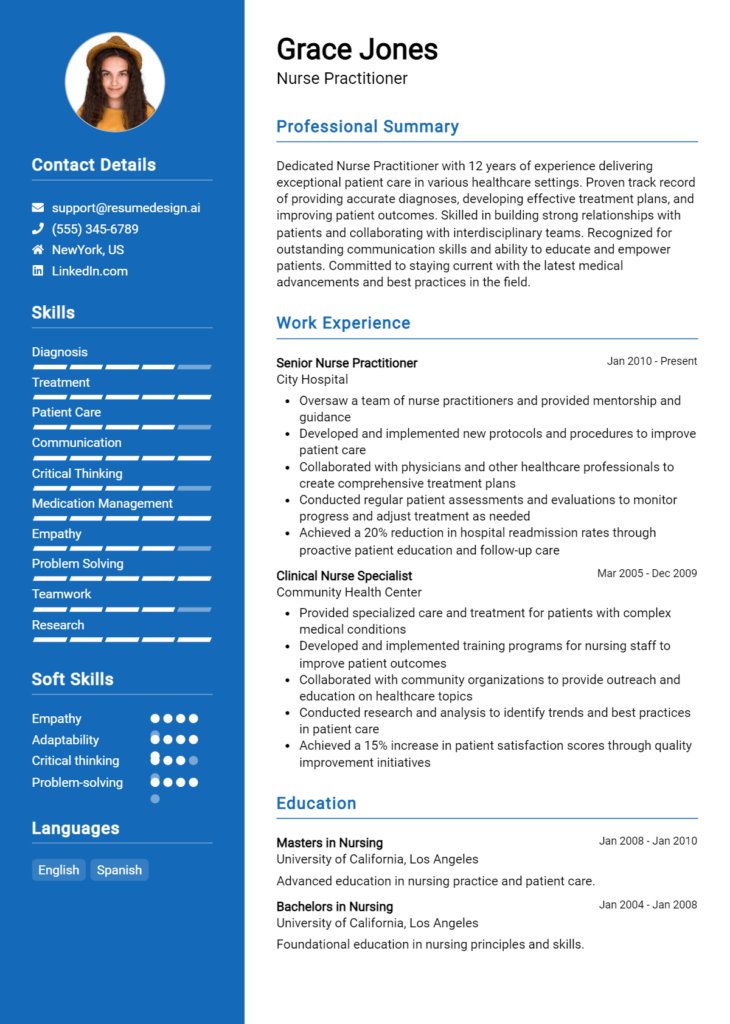Dialysis Nurse Core Responsibilities
A Dialysis Nurse plays a crucial role in patient care, bridging the gap between various healthcare departments. Key responsibilities include monitoring patients during dialysis treatments, managing equipment, and ensuring adherence to safety protocols. Essential skills encompass technical proficiency, operational efficiency, and strong problem-solving capabilities. These competencies contribute significantly to the organization's overall goals by enhancing patient outcomes and streamlining processes. A well-structured resume can effectively showcase these qualifications, highlighting the nurse's ability to thrive in a multidisciplinary environment.
Common Responsibilities Listed on Dialysis Nurse Resume
- Administering dialysis treatments and monitoring patient vitals
- Assessing and documenting patient health status and treatment responses
- Collaborating with nephrologists and other healthcare professionals
- Educating patients and families about dialysis procedures and care
- Maintaining and troubleshooting dialysis equipment
- Ensuring compliance with infection control and safety protocols
- Managing patient schedules and coordinating care plans
- Providing emotional support and counseling to patients
- Evaluating and adjusting treatment plans as needed
- Participating in quality improvement initiatives
- Documenting patient care and treatment outcomes accurately
- Staying updated on advancements in dialysis technology and procedures
High-Level Resume Tips for Dialysis Nurse Professionals
In the competitive field of nursing, a well-crafted resume is crucial for Dialysis Nurse professionals looking to make a lasting impression on potential employers. As the first point of contact, your resume should not only highlight your clinical skills and experiences but also reflect your ability to provide exceptional patient care in a specialized area. It serves as a powerful marketing tool that showcases your qualifications, achievements, and commitment to the field. In this guide, we will provide practical and actionable resume tips specifically tailored for Dialysis Nurse professionals, helping you to stand out in the job market and secure that coveted interview.
Top Resume Tips for Dialysis Nurse Professionals
- Tailor your resume for each job application by closely matching your skills and experiences with the job description.
- Highlight relevant experience in dialysis nursing, including specific procedures, technologies, and patient care protocols you have worked with.
- Quantify your achievements, such as the number of patients managed or improvements in patient outcomes, to demonstrate your impact.
- Include industry-specific skills, such as knowledge of dialysis equipment, patient assessment techniques, and infection control protocols.
- Use action verbs to convey your responsibilities and accomplishments, such as “administered,” “monitored,” and “collaborated.”
- Incorporate certifications and licenses relevant to dialysis nursing, such as Certified Nephrology Nurse (CNN) or Basic Life Support (BLS).
- Keep your resume concise and focused, ideally one page, while ensuring it is easy to read and well-organized.
- Utilize a professional format with clear headings, bullet points, and consistent font styles to enhance readability.
- Include a summary statement at the beginning of your resume that encapsulates your experience, skills, and passion for dialysis nursing.
By implementing these tips, you can significantly enhance your resume and increase your chances of landing a job in the Dialysis Nurse field. A strong resume not only communicates your qualifications but also demonstrates your dedication to providing excellent patient care, making you a desirable candidate for potential employers.
Why Resume Headlines & Titles are Important for Dialysis Nurse
In the competitive field of healthcare, particularly for specialized roles like a Dialysis Nurse, having a well-crafted resume is essential. One of the most critical components of a resume is the headline or title, which serves as the first impression for hiring managers. A strong headline immediately captures attention and succinctly summarizes a candidate's key qualifications, making it easier for recruiters to identify top talent. It should be concise, relevant, and tailored directly to the position being applied for, acting as a powerful introduction to the candidate's skills and experience in the dialysis nursing realm.
Best Practices for Crafting Resume Headlines for Dialysis Nurse
- Keep it concise – Aim for one impactful phrase that sums up your qualifications.
- Be specific – Use terminology relevant to dialysis nursing to showcase your expertise.
- Highlight key skills – Emphasize your most relevant skills and certifications.
- Use action words – Start with strong verbs to convey your proactivity and competence.
- Tailor to the job – Customize your headline for each application to align with the job description.
- Include years of experience – If applicable, mention your experience level to add credibility.
- Showcase accomplishments – If possible, include notable achievements or recognitions.
- Maintain professionalism – Use formal language that reflects the seriousness of the role.
Example Resume Headlines for Dialysis Nurse
Strong Resume Headlines
Compassionate Dialysis Nurse with 5+ Years of Experience in Patient Care
Certified Nephrology Nurse Skilled in Managing Complex Dialysis Treatments
Dedicated Dialysis Nurse Committed to Enhancing Patient Quality of Life
Results-Driven Dialysis Nurse with Proven Track Record in Patient Outcomes Improvement
Weak Resume Headlines
Nurse Looking for a Job
Dialysis Nurse with Experience
Healthcare Professional
The strong headlines are effective because they provide specific information about the candidate's experience, skills, and dedication to the field of dialysis nursing. They set a positive tone and convey a sense of professionalism that is appealing to hiring managers. Conversely, the weak headlines fail to impress because they are vague and lack detail. They do not capture the essence of the candidate's qualifications or convey any sense of urgency or expertise, ultimately making them less memorable in a competitive job market.
Writing an Exceptional Dialysis Nurse Resume Summary
A well-crafted resume summary is essential for a Dialysis Nurse as it serves as the first impression a candidate makes on hiring managers. This brief yet powerful statement succinctly highlights key skills, relevant experience, and significant accomplishments, allowing hiring managers to quickly assess the candidate's qualifications. A strong summary not only captures attention but also sets the tone for the rest of the resume, showcasing the candidate's suitability for the role. It should be concise, impactful, and specifically tailored to align with the job description, ensuring that it resonates with the needs of potential employers.
Best Practices for Writing a Dialysis Nurse Resume Summary
- Quantify Achievements: Use numbers to highlight your successes (e.g., patient outcomes, reduced wait times).
- Focus on Relevant Skills: Emphasize skills directly related to dialysis nursing, such as patient assessment and technical proficiency.
- Tailor for Each Job: Customize the summary for every position you apply for, reflecting the specific requirements mentioned in the job description.
- Highlight Certifications: Mention relevant certifications, such as Certified Dialysis Nurse (CDN), to enhance credibility.
- Showcase Experience: Briefly describe your years of experience and the variety of settings you've worked in (e.g., outpatient clinics, hospitals).
- Use Action-Oriented Language: Start with strong action verbs to convey confidence and proactivity.
- Keep It Concise: Aim for 2-4 sentences that deliver maximum impact without overwhelming the reader.
- Reflect Passion for Patient Care: Show your commitment to patient-centered care and improving patient outcomes.
Example Dialysis Nurse Resume Summaries
Strong Resume Summaries
Compassionate Dialysis Nurse with over 5 years of experience in managing patient care in outpatient settings. Successfully reduced patient wait times by 20% through efficient scheduling and streamlined communication.
Dedicated Dialysis Nurse with a track record of improving patient outcomes; achieved a 15% increase in patient satisfaction scores over a 2-year period. Certified in advanced hemodialysis techniques.
Experienced Dialysis Nurse with expertise in both pediatric and adult care, recognized for implementing best practices that enhanced treatment efficiency by 30%. Proven ability to educate patients on their treatment plans.
Weak Resume Summaries
Dialysis Nurse with some experience in the field, looking for a job.
I am a nurse who cares about patients and wants to work in dialysis.
The examples of strong resume summaries are compelling because they provide specific achievements and relevant skills that directly relate to the role of a Dialysis Nurse. They quantify results, showcasing the candidate's effectiveness and commitment to patient care. In contrast, the weak summaries fail to provide any measurable outcomes or specific skills, making them vague and unmemorable. They do not demonstrate an understanding of the role or highlight the candidate's qualifications, which can leave hiring managers unimpressed.
Work Experience Section for Dialysis Nurse Resume
The work experience section of a Dialysis Nurse resume is crucial as it highlights the candidate's technical skills and competencies that are essential in providing high-quality care to patients undergoing dialysis treatment. This section not only showcases the nurse's ability to manage teams and collaborate effectively but also emphasizes their achievements in relation to industry standards. Quantifying these accomplishments allows potential employers to gauge the nurse's impact in previous roles, making it imperative to align experiences with measurable outcomes and industry benchmarks.
Best Practices for Dialysis Nurse Work Experience
- Clearly outline your technical skills related to dialysis procedures and patient care.
- Quantify your achievements with specific metrics, such as the number of patients managed or improvement in patient outcomes.
- Highlight leadership roles and collaborative efforts in team settings to demonstrate your ability to work effectively with other healthcare professionals.
- Use action verbs to convey your contributions and responsibilities accurately.
- Align your experiences with industry standards and best practices to show your familiarity with current protocols.
- Include continuing education or certifications relevant to dialysis nursing to bolster your qualifications.
- Tailor your work experience to match the job description, emphasizing the most relevant duties and accomplishments.
- Showcase any involvement in quality improvement initiatives or patient education programs.
Example Work Experiences for Dialysis Nurse
Strong Experiences
- Managed care for over 50 patients per week, resulting in a 20% increase in patient satisfaction scores within one year.
- Led a team of 5 nurses in implementing a new patient monitoring system, reducing medication errors by 15%.
- Collaborated with physicians and dietitians to develop individualized care plans, improving patient adherence to treatment protocols by 30%.
- Facilitated monthly training sessions for nursing staff, enhancing technical skills and knowledge of dialysis best practices.
Weak Experiences
- Worked with patients in a dialysis setting.
- Helped colleagues with various tasks and responsibilities.
- Participated in some training sessions.
- Assisted in patient care as needed.
The examples categorized as strong demonstrate specific, quantifiable outcomes and active leadership roles, reflecting a high level of expertise and collaboration within the healthcare team. In contrast, the weak experiences lack detail and measurable results, making them less impactful and failing to convey the candidate's true capabilities and contributions as a Dialysis Nurse.
Education and Certifications Section for Dialysis Nurse Resume
The education and certifications section of a Dialysis Nurse resume is crucial in establishing the candidate's academic foundation and professional qualifications. This section not only showcases the formal education received but also highlights industry-relevant certifications and evidence of continuous learning efforts. Providing details about relevant coursework, specialized training, and recognized certifications significantly enhances the candidate's credibility and demonstrates alignment with the job role, making it easier for hiring managers to recognize their expertise and commitment to patient care in the field of dialysis nursing.
Best Practices for Dialysis Nurse Education and Certifications
- Focus on relevant degrees, such as an Associate's or Bachelor's in Nursing.
- Include industry-recognized certifications, such as the Certified Nephrology Nurse (CNN) or Certified Dialysis Nurse (CDN).
- Highlight any specialized training related to dialysis procedures and patient care.
- Provide details about any continuing education courses taken to stay current in the field.
- Use clear and concise descriptions for certifications and coursework to enhance readability.
- Order educational qualifications chronologically, starting with the most recent.
- Tailor the section to reflect the specific requirements of the job description.
- Consider including memberships in professional organizations related to nephrology or dialysis nursing.
Example Education and Certifications for Dialysis Nurse
Strong Examples
- Bachelor of Science in Nursing (BSN), University of Health Sciences, 2021
- Certified Nephrology Nurse (CNN), Nephrology Nursing Certification Commission, 2022
- Advanced Dialysis Techniques Course, National Kidney Foundation, 2023
- Basic Life Support (BLS) Certification, American Heart Association, 2023
Weak Examples
- Associate Degree in General Studies, Community College, 2019
- Certification in Basic Nursing Assistant, 2018
- Old CPR Certification (expired), 2020
- High School Diploma, Graduated 2015
The strong examples showcase relevant educational qualifications and certifications that are directly aligned with the responsibilities of a Dialysis Nurse, demonstrating both commitment to the specialty and up-to-date knowledge. In contrast, the weak examples highlight outdated or irrelevant qualifications that do not contribute to the candidate’s ability to perform effectively in a dialysis nursing role, potentially raising concerns about their preparedness for the position.
Top Skills & Keywords for Dialysis Nurse Resume
As a Dialysis Nurse, having the right skills is crucial not only for securing a job but also for providing the best patient care. A well-crafted resume that highlights both hard and soft skills can significantly enhance your chances of standing out in a competitive job market. Dialysis Nurses must possess a unique blend of technical expertise and interpersonal abilities. Hard skills demonstrate your proficiency in essential medical procedures, while soft skills showcase your ability to connect with patients and work effectively within a healthcare team. By incorporating relevant skills into your resume, along with a detailed summary of your work experience, you can present yourself as a well-rounded candidate ready to meet the challenges of this vital role.
Top Hard & Soft Skills for Dialysis Nurse
Soft Skills
- Empathy and Compassion
- Effective Communication
- Team Collaboration
- Time Management
- Problem-Solving
- Adaptability
- Attention to Detail
- Critical Thinking
- Patient Advocacy
- Stress Management
- Cultural Competence
- Active Listening
- Conflict Resolution
- Interpersonal Skills
- Emotional Intelligence
Hard Skills
- Hemodialysis Procedures
- Patient Assessment
- Electronic Medical Records (EMR) Proficiency
- Knowledge of Dialysis Equipment
- IV Therapy Administration
- Infection Control Practices
- Medication Management
- Laboratory Testing and Interpretation
- Patient Education
- Care Planning
- Emergency Response Techniques
- Regulatory Compliance
- Data Analysis
- Wound Care Management
- Vital Signs Monitoring
- Documentation Skills
- Quality Improvement Practices
- Basic Life Support (BLS) Certification
Stand Out with a Winning Dialysis Nurse Cover Letter
Dear [Hiring Manager's Name],
I am writing to express my interest in the Dialysis Nurse position at [Hospital/Clinic Name] as advertised on [where you found the job listing]. With over [X years] of nursing experience and specialized training in nephrology, I am confident in my ability to provide exceptional care to patients undergoing dialysis treatment. My dedication to patient-centered care, combined with my clinical expertise, makes me a strong candidate for your team.
In my previous role at [Previous Employer], I managed a diverse patient caseload, performing both hemodialysis and peritoneal dialysis. I developed individualized care plans while collaborating with multidisciplinary teams to ensure optimal treatment outcomes. My strong communication skills allowed me to educate patients and their families about the dialysis process, addressing their concerns and promoting adherence to treatment plans. I take pride in building trusting relationships with my patients, which is essential for their emotional well-being and treatment success.
I am particularly impressed by [Hospital/Clinic Name]'s commitment to patient care and innovation in dialysis treatments. I am eager to contribute to your mission by utilizing my skills in patient assessment, monitoring vital signs, and troubleshooting dialysis equipment to deliver safe and effective care. My ability to remain calm under pressure and my attention to detail ensure that I can handle any challenges that arise during treatment sessions.
I would welcome the opportunity to discuss how my experience and passion for nephrology align with the goals of your esteemed institution. Thank you for considering my application. I look forward to the possibility of contributing to the exceptional care provided at [Hospital/Clinic Name]. Please feel free to contact me at [your phone number] or [your email] to arrange a convenient time for an interview.
Sincerely,
[Your Name]
Common Mistakes to Avoid in a Dialysis Nurse Resume
When crafting a resume for a Dialysis Nurse position, it's crucial to present your skills and experience in a compelling and professional manner. Unfortunately, many candidates make common mistakes that can undermine their chances of landing an interview. Avoiding these pitfalls will enhance your resume's effectiveness and showcase your qualifications more clearly. Here are some common mistakes to watch out for:
Generic Objective Statement: Using a vague or generic objective can make your resume blend in with the rest. Tailor your objective to reflect your passion for dialysis nursing and the specific role you're applying for.
Lack of Relevant Experience: Failing to highlight pertinent experience in dialysis or renal care can detract from your qualifications. Be specific about your responsibilities and achievements in previous roles related to dialysis.
Ignoring Keywords: Many employers use Applicant Tracking Systems (ATS) to filter resumes. Not including relevant keywords from the job description can result in your resume being overlooked.
Overloading with Technical Jargon: While it’s important to demonstrate your knowledge, using too much technical jargon can alienate readers. Aim for a balance that showcases your expertise while remaining accessible.
Neglecting Soft Skills: Dialysis nursing requires strong interpersonal skills. Omitting soft skills like communication, empathy, and teamwork can make your resume seem one-dimensional.
Poor Formatting: A cluttered or difficult-to-read resume can turn hiring managers away. Use clear headings, bullet points, and consistent formatting to ensure your information is easily digestible.
Inaccurate or Outdated Information: Including incorrect or outdated details, such as licensure or certifications, can raise red flags. Always double-check that your information is current and accurate.
Skipping Professional Development: Not mentioning ongoing education, certifications, or training can make your resume appear stagnant. Highlight any relevant courses or workshops that demonstrate your commitment to professional growth.
Conclusion
As a Dialysis Nurse, you play a crucial role in the healthcare system, providing essential care to patients with kidney failure. Your responsibilities include monitoring patients during dialysis treatments, ensuring their comfort, and managing potential complications. Additionally, you must educate patients and their families about the treatment process and lifestyle changes necessary for maintaining health.
It's important to highlight your specialized skills, clinical knowledge, and compassionate approach when presenting your qualifications. An impactful resume can significantly enhance your job prospects in this demanding field.
Now is the perfect time to review your Dialysis Nurse Resume. Ensure it reflects your experience, skills, and dedication to patient care. If you’re looking for resources to help you craft a standout resume, consider exploring resume templates, using a resume builder, reviewing resume examples, or creating a compelling cover letter with cover letter templates. Take action today to enhance your career opportunities!

